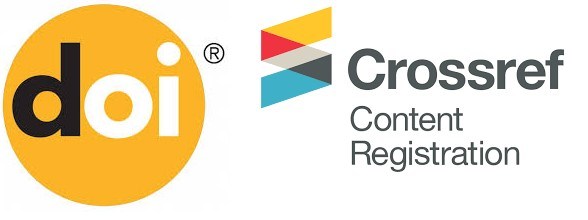Conocimiento Estadístico Especializado en Profesores de Educación Básica, basado en la taxonomía SOLO
DOI:
https://doi.org/10.46219/rechiem.v13i4.81Palabras clave:
Estadística Temprana, Modelo STSK, Conocimiento Profesional Docente, Sentido del DatoResumen
El conocimiento especializado de los profesores que enseñan estadística en educación básica requiere de un modelo específico en educación estadística. Esta investigación explora en los conocimientos y niveles de comprensión que manifiestan 192 docentes sobre los conceptos de variable estadística, dato, información estadística y contexto de los datos como temas del eje curricular datos y probabilidades de la asignatura Matemática, lo que permite precisar una propuesta de extensión del modelo de Conocimiento Especializado del Profesor de Matemática (MTSK) a la Estadística, rotulado como modelo STSK (i. e., Statistics Teacher´s Specialised Knowledge). Por medio de la taxonomía SOLO se clasificaron 768 respuestas escritas dadas a cuatro ítems de un cuestionario en línea, instrumento que fue validado a través de juicio experto por 15 especialistas. Este estudio permite aportar teóricamente al conocimiento sobre la formación docente, pues se caracterizaron ciertos conocimientos estadísticos especializados del profesorado, a través de categorías y descripciones, siendo todavía un desafío la comprensión de variable estadística, dato, información estadística y contexto de los datos como conceptos estadísticos fundamentales para el desarrollo profesional docente.
Descargas
Citas
Australian Curriculum, Assessment and Reporting Authority. (2013). The Australian curriculum. Author. https://www.australiancurriculum.edu.au/about-the-australian-curriculum/
Ball, D. L., Thames, M. H., y Phelps, G. (2008). Content knowledge for teaching: What makes it special? Journal of Teacher Education, 59(5), 389-407. https://doi.org/10.1177/0022487108324554
Biggs, J., y Collis, K. F. (1989). Hacia un modelo de desarrollo y evaluación curricular basado en la escuela utilizando la taxonomía SOLO. Australian Journal of Education, 33, 151-163. https://doi.org/10.1177/168781408903300205
Burrill, G., y Biehler, R. (2011). Fundamental statistical ideas in the school curriculum and in training teachers. En C. Batanero, G. Burril y C. Reading (Eds.), Teaching statistics in school mathematics-Challenges for teaching and teacher education (pp. 57-69). Springer. https://doi.org/10.1007/978-94-007-1131-0_10
Carrillo, J., Climent, N., Contreras, L. C., y Muñoz-Catalán, M. C. (2013). Determining specialised knowledge for mathematics teaching. En B. Ubuz, Ç. Haser y M. A. Mariotti (Eds.), Proceedings of the Eighth Congress of the European Society for Research in Mathematics Education (pp. 2985-2994). Middle East Technical University. http://www.mathematik.uni-dortmund.de/~erme/doc/CERME8/CERME8_2013_Proceedings.pdf#page2985
Carrillo, J., Climent, N., Montes, M., Contreras, L., Flores-Medrano, E., Escudero-Ávila, D., Vasco, D., Rojas, N., Flores, P., Aguilar-González, A., Ribeiro, M., y Muñoz-Catalán, M. C. (2018). The mathematics teacher’s specialised knowledge (MTSK) model. Research in Mathematics Education, 1-18. https://doi.org/10.1080/14794802.2018.1479981
Cobb, G. W., y Moore, D. S. (1997). Mathematics, statistics, and teaching. The American Mathematical Monthly, 104(9), 801-823. https://doi.org/10.1080/00029890.1997.11990723
Common Core State Standards Initiative. (2017). Mathematics standards. http://www.corestandards.org/Math/
Del Pino, G., y Estrella, S. (2012). Educación Estadística: relaciones con la matemática. Revista de Investigación Educacional Latinoamericana, Pensamiento Educativo, 49(1), 53-64. https://doi.org/10.7764/PEL.49.1.2012.5
Escobar, J., y Cuervo, A. (2008). Validez de contenido y juicio de expertos: una aproximación a su utilización. Avances en Medición, 6, 27-36.
Estrella, S. (2017). Enseñar estadística para alfabetizar estadísticamente y desarrollar el razonamiento estadístico. En A. Salcedo (Ed.), Alternativas Pedagógicas para la Educación Matemática del Siglo XXI (pp. 173-194). Centro de Investigaciones Educativas, Escuela de Educación. Universidad Central de Venezuela.
Estrella, S. (2018). Data representations in Early Statistics: data sense, meta-representational competence and transnumeration. En A. Leavy, M. Meletiou y E. Paparistodemou (Eds.), Statistics in Early Childhood and Primary Education – Supporting early statistical and probabilistic thinking (pp. 239-256). Springer. https://doi.org/10.1007/978-981-13-1044-7_14
Estrella, S., Alvarado, H., Olfos, R., y Retamal, L. (2019). Desarrollo de la alfabetización probabilística: textos argumentativos de estudiantes (según niveles de razonamiento de la taxonomía SOLO). Revista Paradigma, 40(1), 280-304.
Estrella, S., Vergara, A., y González, O. (en prensa). El desarrollo del sentido del dato: haciendo inferencias desde la variabilidad de los tsunamis en primaria. Statistics Education Research Journal.
Estrella, S., Zakaryan, D., Olfos, R., y Espinoza, G. (2020). How teachers learn to maintain the cognitive demand of tasks through Lesson Study. Journal of Mathematics Teacher Education, 23, 293-310. https://doi.org/10.1007/s10857-018-09423-y
Flores, E., Escudero, D. I., y Carrillo, J. (2013). A theoretical review of specialized content knowledge. En B. Ubuz, C. Haser y M. A. Mariotti (Eds.), Proceedings of CERME8 (pp. 3055-3064). Middle East Technical University, Ankara. https://www.researchgate.net/publication/260266162_A_theoretical_review_of_Specialized_Content_Knowledge
Garfield, J., y Ben-Zvi, D. (2008). Developing students’ statistical reasoning: Connecting research and teaching practice. Springer Science y Business Media. https://doi.org/10.1007/978-1-4020-8383-9
Konold, C., Higgins, T., Russell, S., y Khalil, K. (2015). Datos vistos a través de diferentes lentes. Estudios Educativos en Matemáticas, 88, 305-325. https://doi.org/10.1007/s10649-013-9529-8
Ministerio de Educación de Chile. (2012). Matemática. En Bases Curriculares para la Educación Básica (pp. 85-135). http://www.curriculumenlineamineduc.cl/605/articles-21321_programa.pdf
New Zealand Ministry of Education. (2007). The New Zealand curriculum. Learning Media. https://nzcurriculum.tki.org.nz/The-New-Zealand-Curriculum
Pfannkuch, M. (2011). The role of context in developing informal statistical inferential reasoning: A classroom study. Mathematical Thinking and Learning, 13(1 y 2), 27-46. https://doi.org/10.1080/10986065.2011.538302
Scheiner, T., Montes, M. A., Godino, J. D., Carrillo, J., y Pino-Fan, L. R. (2019). What makes mathematics teacher knowledge specialized? Offering alternative views. International Journal of Science and Mathematics Education, 17(1), 153-172. https://doi.org/10.1007/s10763-017-9859-6
Shulman, L. S. (1986). Those who understand: Knowledge growth in teaching. Educational Researcher, 15(2), 4-14. https://doi.org/10.3102/0013189X015002004
Shulman, L. S. (1987). Knowledge and teaching: Foundations of the new reform. Harvard educational review, 57(1), 1-23. https://doi.org/10.17763/haer.57.1.j463w79r56455411
Vidal-Szabó, P., y Estrella, S. (2020). Extensión del modelo MTSK al dominio estadístico. En Y. Morales-López y Á. Ruíz (Eds.), Educación Matemática en las Américas 2019 (pp. 1036-1042). Comité Interamericano de Educación Matemática. https://conferencia.ciaem-redumate.org/index.php/xvciaem/xv/paper/viewFile/692/327
Vidal-Szabó, P., Kuzniak, A., Estrella, S., y Montoya, E. (2020). Análisis cualitativo de un aprendizaje estadístico temprano con la mirada de los espacios de trabajo matemático orientado por el ciclo investigativo. Revista Educación Matemática, 32(2), 217-246. https://doi.org/10.24844/EM3202.09
Watson, J., y Fitzallen, N. (2021). What sense do children make of “data” by Year 3? En Y. H. Leong, B. Kaur, B. H. Choy, J. B. W. Yeo y S. L. Chi (Eds.), Proceedings of the 43rd Annual Conference of the Mathematics Education Research Group of Australasia (pp. 409-416). The Mathematics Education Research Group of Australasia.
Wild, C., y Pfannkuch, M. (1999). Statistical thinking in empirical enquiry. International Statistical Review, 67(3), 223-265. https://doi.org/10.1111/j.1751-5823.1999.tb00442.x
Wild, C., Utts, J., y Horton, N. (2018). What Is Statistics? En D. Ben-Zvi, K. Makar y J. Garfield (Eds.), International Handbook of Research in Statistics Education (pp. 5-36). Switzerland: Springer, Cham. https://doi.org/10.1007/978-3-319-66195-7_2
Zieffler, A., Garfield, J., y Fry, E. (2018). What is Statistics Education? En D. Ben-Zvi, K. Makar y J. Garfield (Eds.), International Handbook of Research in Statistics Education (pp. 37-70). Springer, Cham. https://doi.org/10.1007/978-3-319-66195-7_2











